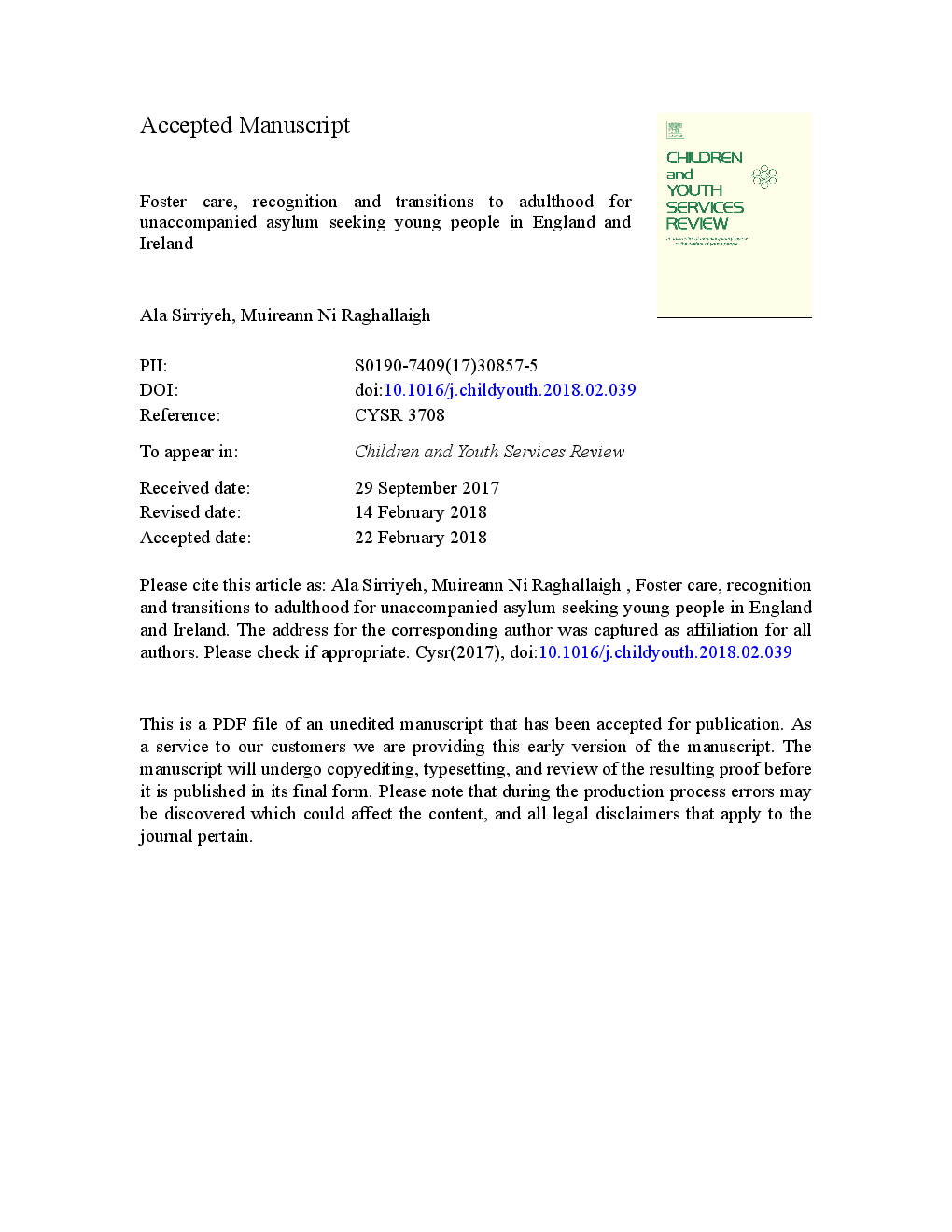ترجمه فارسی عنوان مقاله
مراقبت از فاستر، شناختن و انتقال به بزرگسالی برای پناهندگی مستقل همراه است که جوانان را در انگلستان و ایرلند دنبال می کند
عنوان انگلیسی
Foster care, recognition and transitions to adulthood for unaccompanied asylum seeking young people in England and Ireland
| کد مقاله | سال انتشار | تعداد صفحات مقاله انگلیسی |
|---|---|---|
| 155707 | 2018 | 31 صفحه PDF |
منبع

Publisher : Elsevier - Science Direct (الزویر - ساینس دایرکت)
Journal : Children and Youth Services Review, Available online 24 February 2018
ترجمه کلمات کلیدی
پناهندگی جوانان کودکان بدون همراه، نگهداری فرزند، انتقال،
کلمات کلیدی انگلیسی
Asylum; Young people; Unaccompanied minors; Foster care; Transitions;

